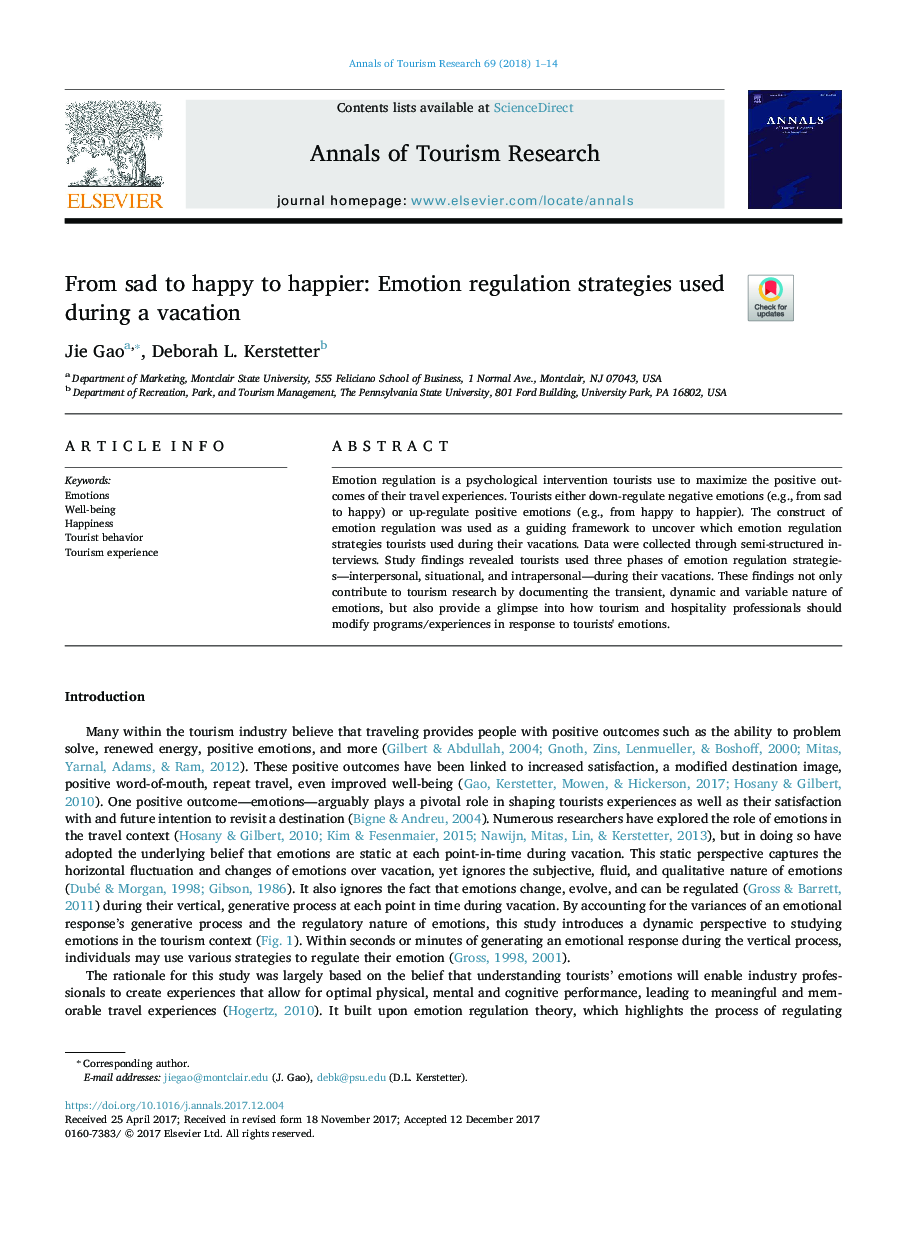| Article ID | Journal | Published Year | Pages | File Type |
|---|---|---|---|---|
| 7416261 | Annals of Tourism Research | 2018 | 14 Pages |
Abstract
Emotion regulation is a psychological intervention tourists use to maximize the positive outcomes of their travel experiences. Tourists either down-regulate negative emotions (e.g., from sad to happy) or up-regulate positive emotions (e.g., from happy to happier). The construct of emotion regulation was used as a guiding framework to uncover which emotion regulation strategies tourists used during their vacations. Data were collected through semi-structured interviews. Study findings revealed tourists used three phases of emotion regulation strategies-interpersonal, situational, and intrapersonal-during their vacations. These findings not only contribute to tourism research by documenting the transient, dynamic and variable nature of emotions, but also provide a glimpse into how tourism and hospitality professionals should modify programs/experiences in response to tourists' emotions.
Related Topics
Social Sciences and Humanities
Business, Management and Accounting
Tourism, Leisure and Hospitality Management
Authors
Jie Gao, Deborah L. Kerstetter,
